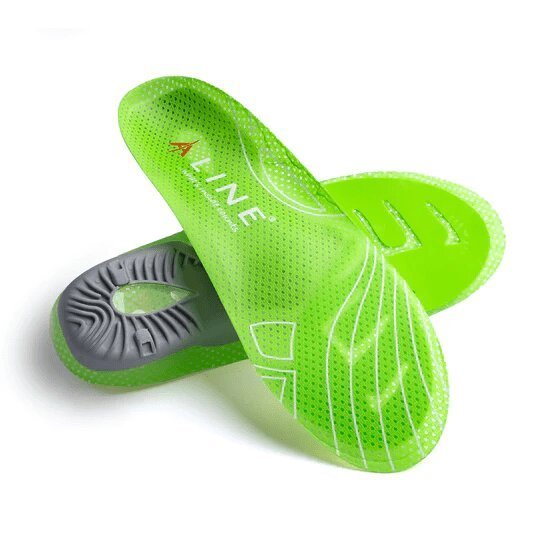Elevate Your Workday: A Comprehensive Guide to Insoles for Work Shoes
Discover the importance of insoles for work shoes and how they enhance comfort, support, and overall foot health for individuals in demanding professions. Learn about the benefits, types, and factors to consider when choosing the right insoles to optimize your workday experience. Unlock the key to a safer, more comfortable, and more productive work environment with high-quality insoles for your work shoes.

In the realm of demanding professions, where individuals spend long hours on their feet, the choice of footwear can significantly impact comfort, productivity, and overall well-being. Work shoes are designed to provide durability and protection, but often lack the necessary support and cushioning for extended wear. This is where insoles for work shoes come into play, offering an additional layer of comfort, support, and stability. In this comprehensive guide, we'll explore the importance of insoles for work shoes, their benefits, types, and how they can enhance your workday experience.
Understanding Insoles for Work Shoes:
Insoles for work shoes, also known as shoe inserts or footbeds, are specialized inserts designed to provide added support, cushioning, and alignment to the feet during prolonged periods of wear. They serve as a barrier between the foot and the hard surface of the shoe, offering relief from pressure points and reducing fatigue. Unlike generic insoles, those designed for work shoes are specifically engineered to withstand the rigors of various occupational environments.
The Benefits of Insoles for Work Shoes:
1. Enhanced Comfort:
One of the primary benefits of insoles for work shoes is enhanced comfort. These inserts provide additional cushioning and support to the feet, reducing fatigue and discomfort during long hours of standing or walking.
2. Improved Support:
Insoles for work shoes offer enhanced arch support and stability, helping to distribute weight evenly across the foot and promote proper alignment. This can help reduce strain on the feet, ankles, and lower back, ultimately minimizing the risk of musculoskeletal issues.
3. Shock Absorption:
Many occupations involve working on hard surfaces or uneven terrain, which can lead to impact-related injuries. Work shoe insoles with built-in shock absorption properties help cushion the feet and absorb impact forces, reducing the risk of injury from repetitive pounding or sudden jolts.
4. Moisture Management:
Some insoles for work shoes are designed with moisture-wicking properties to help keep the feet dry and comfortable throughout the day. By drawing moisture away from the skin, these insoles can help prevent blisters, chafing, and fungal infections, promoting better foot health.
5. Odor Control:
Insoles with antimicrobial properties can help prevent the growth of odor-causing bacteria, keeping work shoes smelling fresh and hygienic even after prolonged use.
Types of Insoles for Work Shoes:
1. Cushioned Insoles:
These insoles are made from soft, cushioning materials such as foam or gel, providing added comfort and shock absorption.
2. Arch Support Insoles:
Designed to support the natural arch of the foot, these insoles help prevent overpronation or flat feet, promoting proper alignment and reducing strain on the feet and ankles.
3. Orthotic Insoles:
Custom-made orthotic insoles are tailored to the individual's foot shape and biomechanics, offering personalized support and comfort for specific foot conditions or injuries.
4. Anti-Fatigue Insoles:
These insoles are specifically designed to reduce foot fatigue and increase energy return, helping workers stay comfortable and focused throughout the day.
5. Thermal Insoles:
Made from insulating materials, thermal insoles help regulate foot temperature, keeping feet warm in cold environments and preventing heat buildup in warmer conditions.
Choosing the Right Insoles for Work Shoes:
When selecting insoles for work shoes, it's essential to consider factors such as foot type, job requirements, and personal preferences. Look for insoles that offer the right combination of cushioning, support, and durability to meet your specific needs. Consider trying on different types of insoles to find the ones that feel most comfortable and supportive for your feet.
Conclusion:
sports insoles play a crucial role in enhancing comfort, support, and overall foot health for individuals in demanding professions. By providing added cushioning, support, and shock absorption, these specialized inserts help reduce fatigue, prevent injuries, and promote better foot health. Whether you're navigating warehouse floors, healthcare facilities, or outdoor worksites, investing in high-quality insoles for your work shoes is a proactive step towards a safer, more comfortable, and more productive work environment.
What's Your Reaction?











![Wireless Connectivity Software Market Size, Share | Statistics [2032]](https://handyclassified.com/uploads/images/202404/image_100x75_661f3be896033.jpg)




